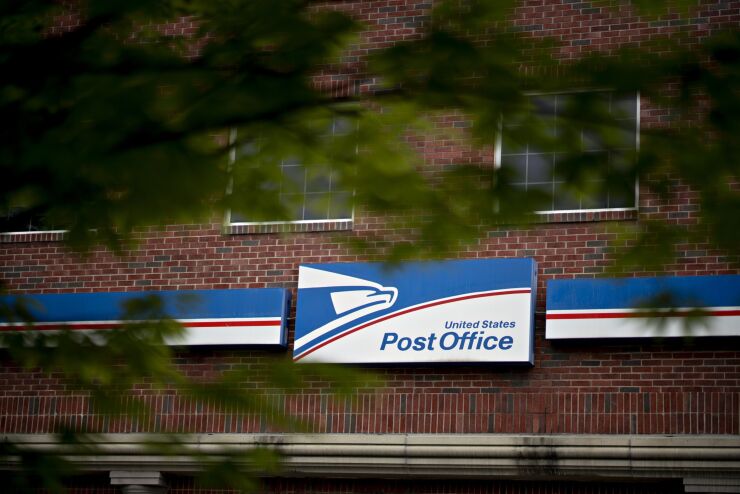WASHINGTON — The House passed a package of appropriations bills Friday including $2 million for the U.S. Postal Service to launch postal banking pilot programs across the country.
The amendment to the appropriations bills was put forward by Reps. Bill Pascrell, D-N.J., and Marcy Kaptur, D-Ohio, who argued that postal banking could be a valuable resource to unbanked Americans as well as low-income neighborhoods.
Proponents of postal banking envision consumers lacking access to mainstream banks could find services such as checking accounts, bill payment and small-dollar loans at USPS sites. The idea has gained steam since the onset of the coronavirus pandemic.
Democrats have argued that postal banking could have provided an avenue for the unbanked or underbanked to cash their $1,200 stimulus checks that Congress authorized in March.
“As our nation reels from the dual COVID-19 public health and economic crisis, financial resilience and interconnectivity are more important than ever,” Kaptur said in a release issued with Pascrell. “With a branch in every rural and urban ZIP code and trusted by all Americans, the Postal Service must provide a financial lifeline to those in need.”

Yet the postal banking measure will likely face resistance from GOP lawmakers as well as bankers who argue that the Postal Service is ill equipped as a financial services provider.
The Pascrell-Kaptur amendment "would be detrimental to customers and harm community financial institutions already struggling to comply with the regulatory burdens imposed by Dodd-Frank," Republicans on the House Financial Services Committee said in a joint press release.
But community groups have said that postal banking could help to fill the gap in areas that might not have access to bank branches or credit unions.
“Ninety percent of ZIP codes lacking a bank or credit union are in rural areas,” Pascrell said in the release issued with Kaptur. “Bank branches are also sparse in low income urban areas.”
He added that about 46% of Latino households and 49% of African American households are underbanked, meaning that they lack access to the financial system.
Sen. Sherrod Brown, the top Democrat on the Senate Banking Committee,





